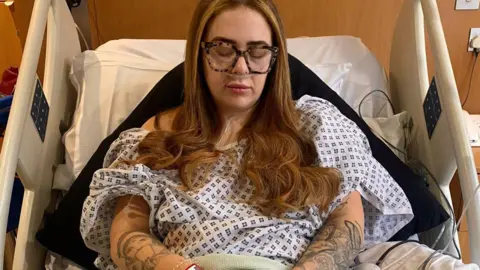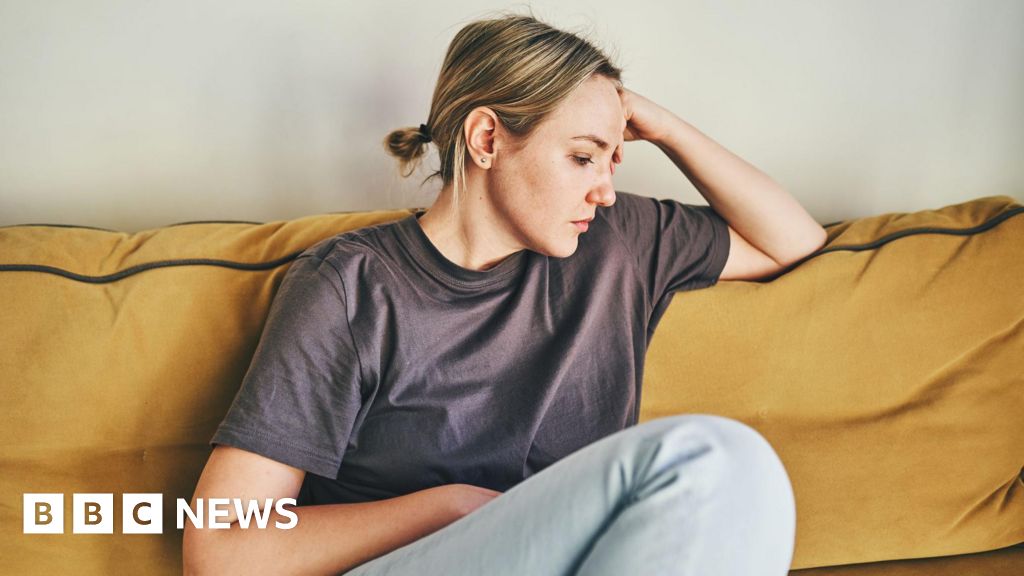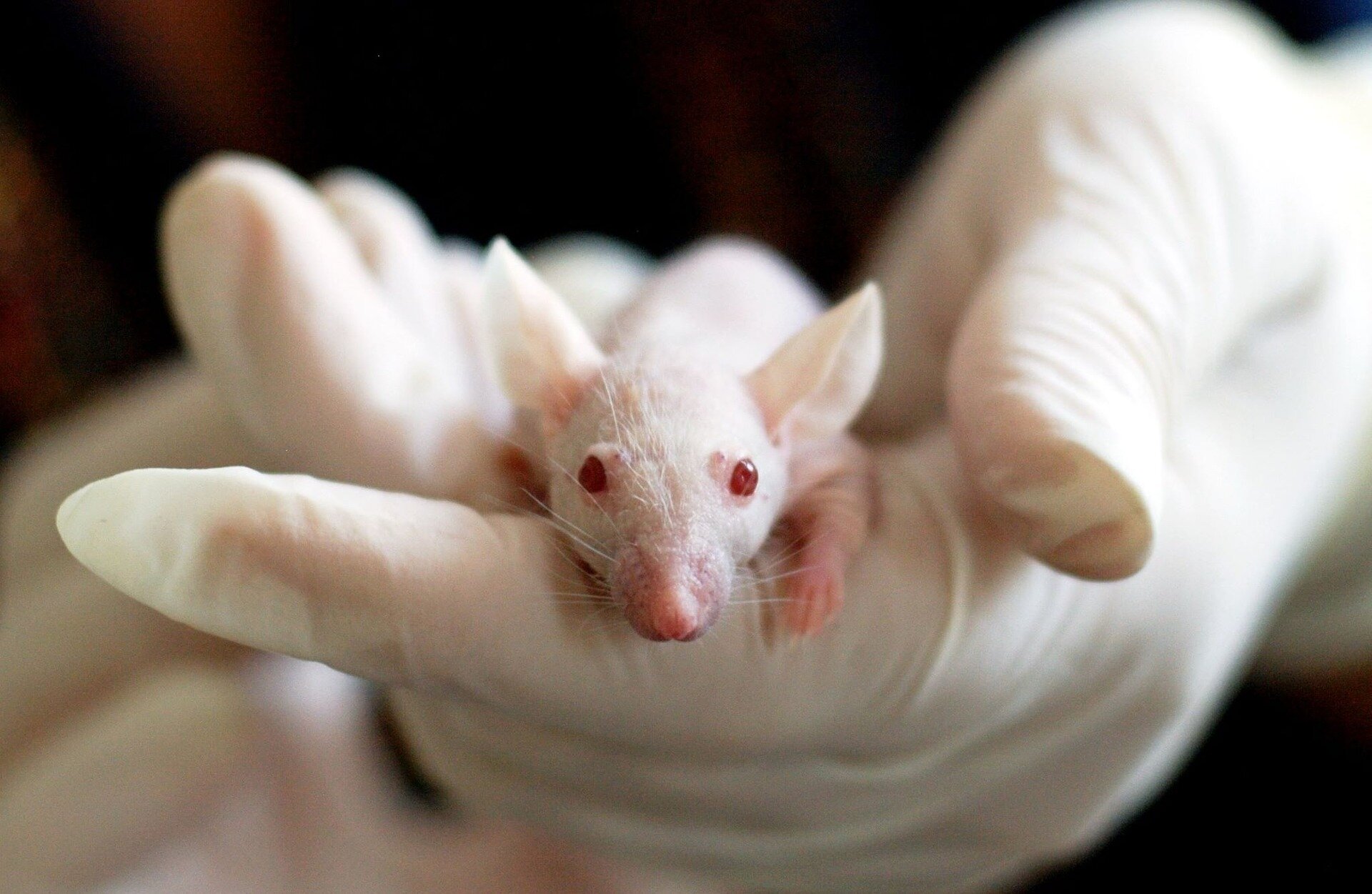 Getty Images
Getty ImagesWomen experiencing painful health conditions, including heavy periods, endometriosis and adenomyosis, are being dismissed when they ask for help, an MPs’ report has warned.
Diagnosis and treatment for these common issues can take years, leaving women and girls in so much pain that it disrupts all aspects of daily life, members of Westminster’s Women and Equalities Committee concluded.
Chair Sarah Owen said “misogyny in medicine” was “leaving women in pain and their conditions undiagnosed” – and called for more investment in and support for women’s reproductive health conditions.
The government has described the situation as “unacceptable” and said it will “overhaul women’s healthcare”.
Misogyny is defined as feelings of hatred towards women, or the belief that men are much better than women.
The committee’s report comes after an inquiry which saw its members interview women about their experiences, including BBC presenter Naga Munchetty and TV personality Vicky Pattison.
It found a “clear lack of awareness and understanding of women’s reproductive health conditions among primary healthcare practitioners”.
And it cited a stigma and lack of education around the conditions, mirrored by a lack of medical research, specialists and treatments. This means gynaecological waiting lists have grown faster than any other medical specialty in recent years.
The report calls on the NHS to “urgently implement a training programme” to improve the experience of women and girls accessing diagnosis and treatment for gynaecological conditions.
BBC News recently reported that waiting lists for gynaecology appointments across the UK had more than doubled since 2020, with around 755,000 women’s health appointments waiting to happen.
Many women shared their experiences of waiting in agony for vital treatment and often having to pay for private care.
Claire, 40, paid £10,000 for a hysterectomy 12 weeks ago to relieve her debilitating symptoms of endometriosis and adenomyosis – she would have had to wait three years for the same operation on the NHS.
Bethany, 27, was diagnosed with endometriosis seven years ago and told she needed to chose between having children or having her womb removed. She sought a second opinion from the NHS, but by the time she had an initial procedure, she could not move her legs without pain.
She is now exploring treatment for ongoing issues through private health insurance.
“I can’t put into words how profound the grief is for the life that I could’ve and should’ve had,” Bethany said.
‘Women are told to put up and shut up’
 Gabriella Pearson
Gabriella PearsonGabriella Pearson, 32, started her periods when she was 10 and says her journey has been “difficult”.
“My periods were really heavy and painful from the start. I was also experiencing a lot of bowel and stomach issues.”
Aged 12, she went to the doctors with her mother and was put on the contraceptive pill. But the pain continued throughout her school years.
“I really struggled with my mental health as well. In year 11 I got really bad depression and did my GCSEs from home,” she told the BBC.
“When you are chronically ill you learn to just mask and get on with it because that’s what you’re told your whole life. Especially as a woman – that you should just put up and shut up.”
Gabriella is no longer able to work, but has co-founded a charity called Menstrual Health Project which she helps run on a voluntary basis to support women.
Her fertility has been impacted and she cannot have children naturally. She is waiting to have a hysterectomy next year due to her adenomyosis, a condition she describes as “horrific”.
“We normalise high amounts of pain, heavy menstrual bleeding and all the bowel symptoms that you get with conditions like endometriosis, adenomyosis, fibroids, polycystic ovary syndrome (PCOS) – and it’s just really sad.”
Owen, a Labour MP who chairs the Equalities Committee, said: “Women are finding their symptoms dismissed, are waiting years for life changing treatment and in too many cases are being put through trauma-inducing procedures.
“All the while, their conditions worsen and become more complicated to treat.”
Up to one in three women live with heavy menstrual bleeding while one in 10 have a condition such as endometriosis or adenomyosis, she said.
According to an analysis by the Office for National Statistics, 2% of women aged 15-49 are estimated to have an endometriosis diagnosis, although it said many more will be affected and won’t have a diagnosis.
“It cannot be right that despite the prevalence of these conditions, that such a lack of understanding and awareness persists,” Owen said.
She also called for women with a suspected or diagnosed reproductive health condition to be offered specialist mental health support.
Dr Henrietta Hughes, patient safety commissioner for England, welcomed the report, saying the NHS needed to take “a long hard look” at the way patients are involved in their care.
“We need to treat patients as partners, make sure that they are well-informed, listened to and that they have a good experience of care,” Dr Hughes said.
A Department of Health and Social Care spokesperson in England said it was “totally unacceptable that women with reproductive conditions are not getting the care they need and that their voices are not being heard”.
“That is why we will overhaul women’s healthcare, placing women’s equality at the heart of our agenda, and ensure women’s health is never again neglected.”
They added that an extra £26bn was being invested into the NHS and, with that, the government would get the service “back on its feet so it delivers for all patients”.
Health ministers in Scotland, Wales and Northern Ireland say plans are in place to tackle long waits for treatment.
A spokesperson for the Welsh government said women’s health had been made “a key priority”.



